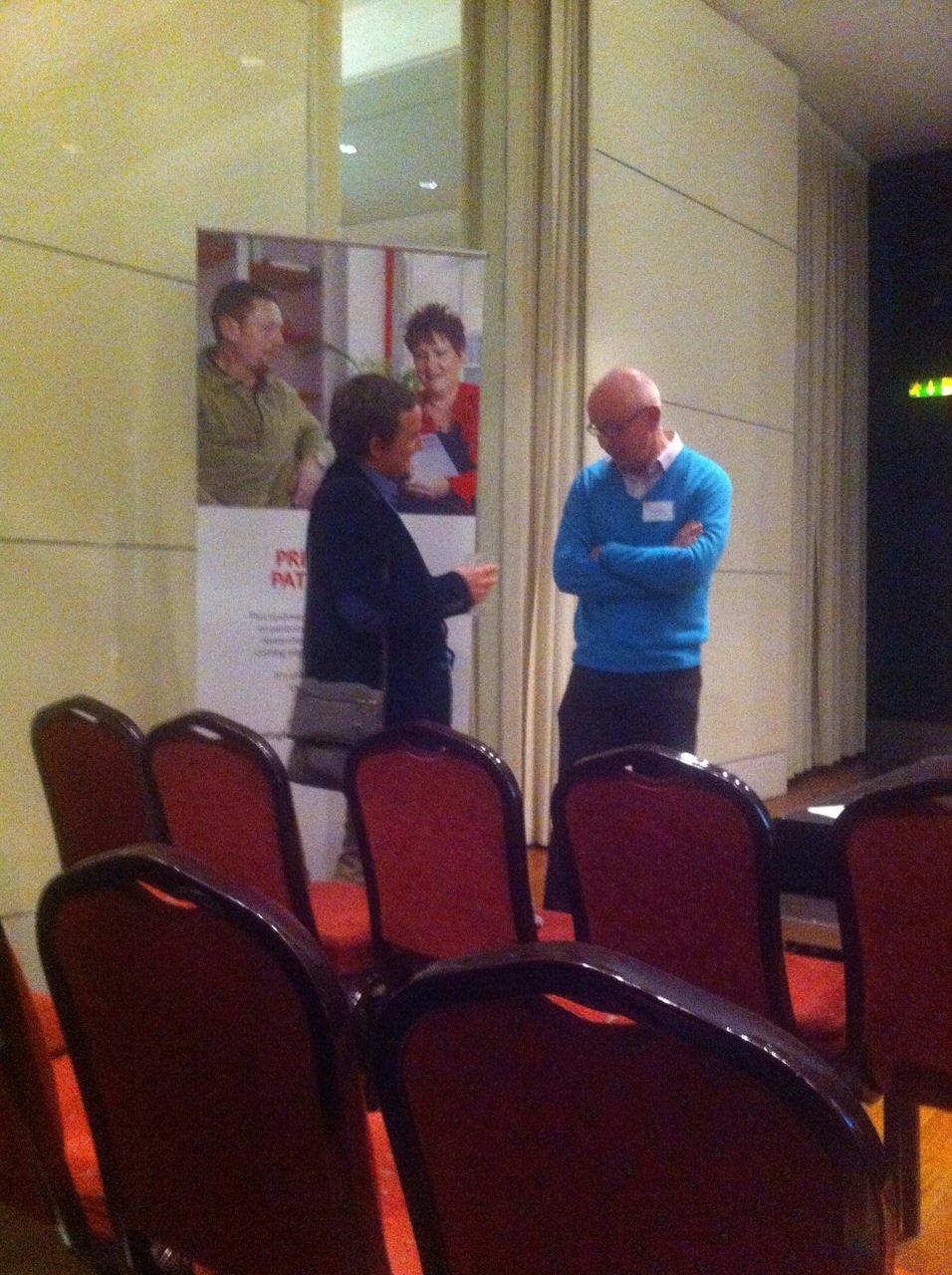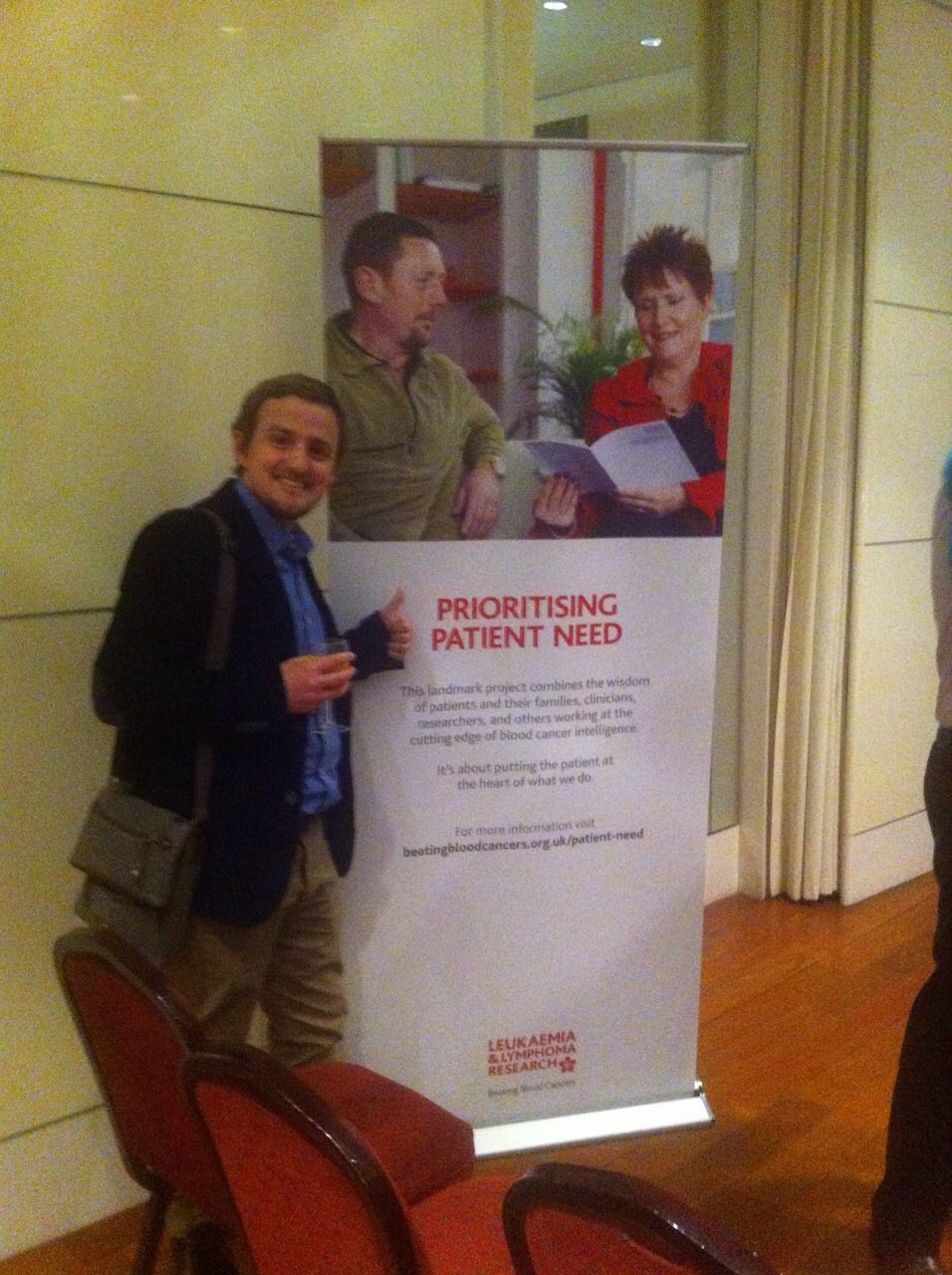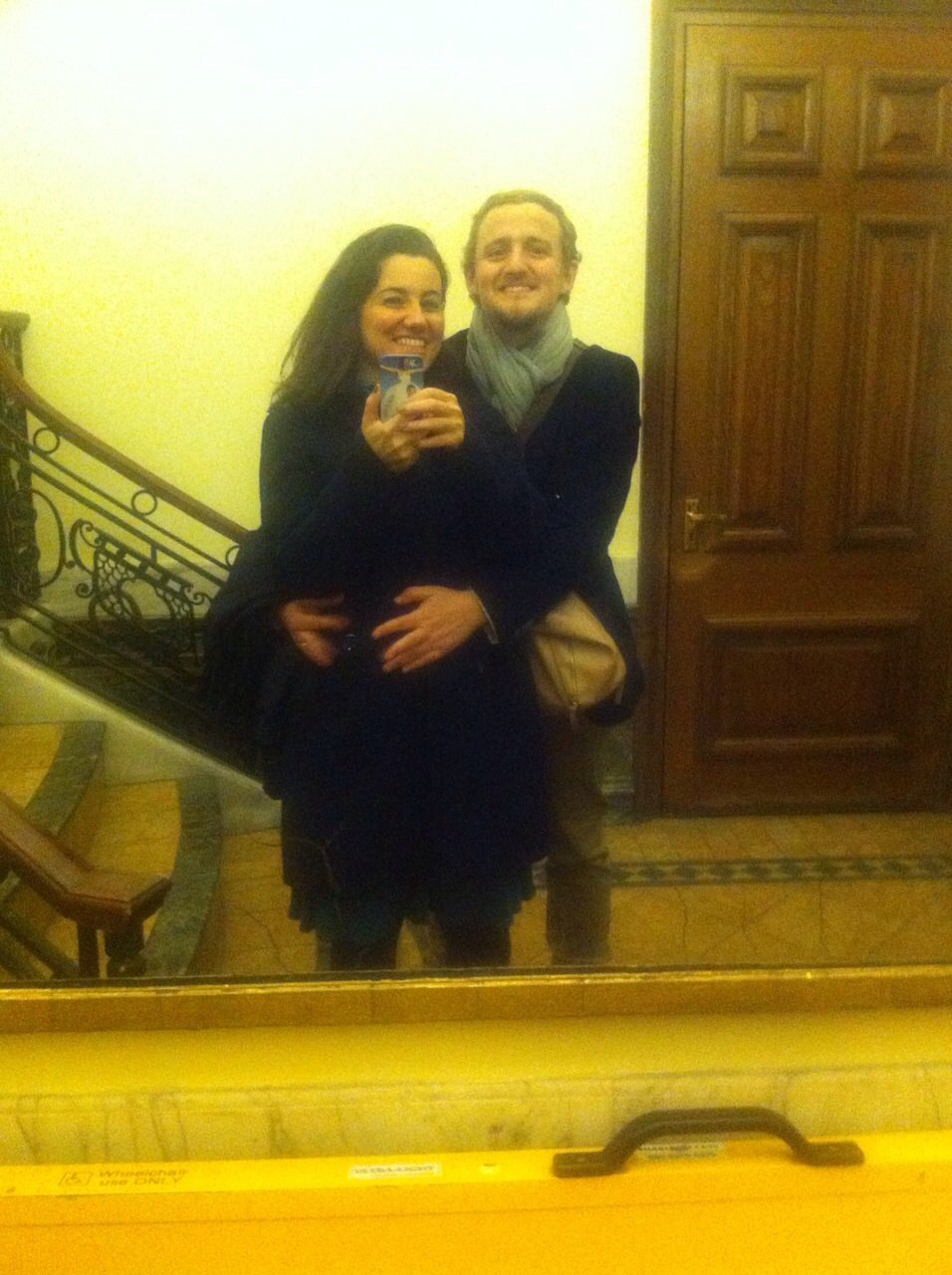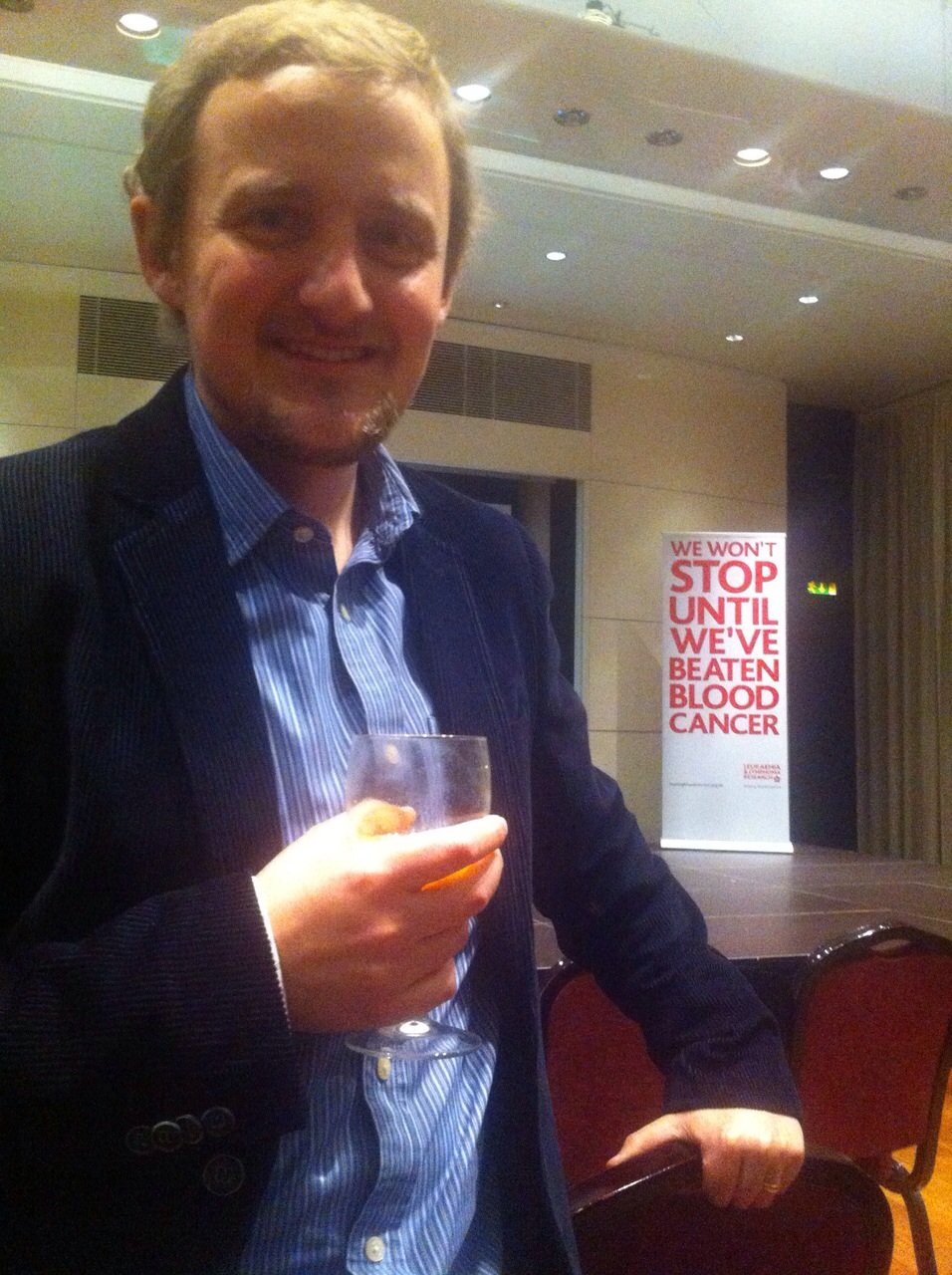
There was always a bit of a joke in my family as we were growing up: with four children, my parents thought they might be well provided for if one of us grew up to be a doctor, another an accountant, a third a lawyer and finally, I think, it was a toss-up between a priest and an undertaker. Instead my dad’s been left with two teachers, a journalist and a sales/marketing guru for a children’s clothing store (worth checking out: Stonz).
In a similar way, when I rolled out links to three charities particularly close to my heart on Day +12, I felt that, in a very broad way, they covered my illness and treatment. Leukaemia & Lymphoma Research (LLR) were there to find ways to help me beat the disease; Anthony Nolan found a bone marrow match (or three) on their register to give me a chance of keeping it away; and the Full Circle Fund could provide the soothing comforts of reflexology and massage to counteract the general yuckiness of chemotherapy. You won’t be surprised to hear I still think they’re all fab.
It turns out, however, that they’re not quite so easy to categorise. I shuffled along to an LLR event the other night at which I was inspired and fascinated: the progress already made in treatment for blood cancers is astounding, and the science of what they’re doing to make things even better, sooner, was mind-boggling. To some extent, though, I already knew that. What really made me sit up was when the director of research explained the charity’s conscious decision to move from being research-based to patient-focused (Prioritising Patient Need), which will inform its priorities and explains its rapid expansion of the patient engagement and support side of the charity.

But they’re not the only ones. Anthony Nolan’s patient engagement team has been going from strength to strength as they hoover up the experiences of people who have had transplants (or donated stem cells) and turn out relevant, useful advice not just relating to the transplant itself, but also to all the other particular challenges caused by the ripples of the procedure. A recent chat with Full Circle founder Suzie reminded me how the complementary therapies it provides are part of a far wider-reaching philosophy of improving quality of life for children and adults: the therapies have measurable medical benefits, but are equally important in contributing to a happier, more comfortable life for people facing a tough time on the clinical side.
After all, life doesn’t – or shouldn’t – be put on hold when you’re ill. You still need and want to feel as well, fulfilled and happy as you can. Often hospitals can be the worst places for this, although there are glimmers of hope that this might be changing, as my brilliant journalist friend (and fellow leukaemia and transplant patient) Hannah explains in an immensely readable and inspiring article for the Huffington Post.

Hannah is particularly eloquent and insightful, but she’s not my only acquaintance with similar experiences to mine from whom I’ve taken huge strength – I’ve always learnt so much from shared stories and strategies for how to deal with my illness and its consequences. LLR and Anthony Nolan are among many organisations who are recognising the key role patient networks can play, and are both building fantastic communities to help people feel less alone. I’ve been itching to get more involved with Shine Cancer Support, too, which brings together young adults with cancer.
Similarly, Chris’s Cancer Community connects people from all over the world to reduce feelings of isolation while its inspirational founder makes his not-inconsiderable patient voice heard (not least at my second home, St George’s). I’m delighted to have linked up recently with National Voices, which is forcing government and NHS leaders sit up and make healthcare more patient-centred in its capacity as an umbrella organisation for a huge number of health and social care charities.

Patients really do seem to be getting more attention. In the nine years since I was first diagnosed with leukaemia, I have definitely seen a shift in priorities towards a more holistic approach: there is a far greater recognition of the importance of treating the person, not just the illness. At the same time, the unique insights of patients are being recognised more and more as key to better care and support.
People have probably always been shouting about what life as a patient is really like. Now, perhaps, we’re being heard.

Thanks, George, for that splendid contribution. Nick
Amazing, thank you George for including us on this wonderful piece.
Ps Things moving v fast for FCF following on from our âlastâ conversation..
all the best
suzie
Suzanne Ruggles MSc
T: 020 8725 5503
Project Director & Therapies Co-ordinator
E: suzanne.ruggles@stgeorges.nhs.uk
Full Circle Fund
F: 020 8725 2068
St. George’s Healthcare NHS Trust
W: http://www.fullcirclefund.org.uk
Follow us on Twitter @FullCircle_Fund
Find Us on Facebook!